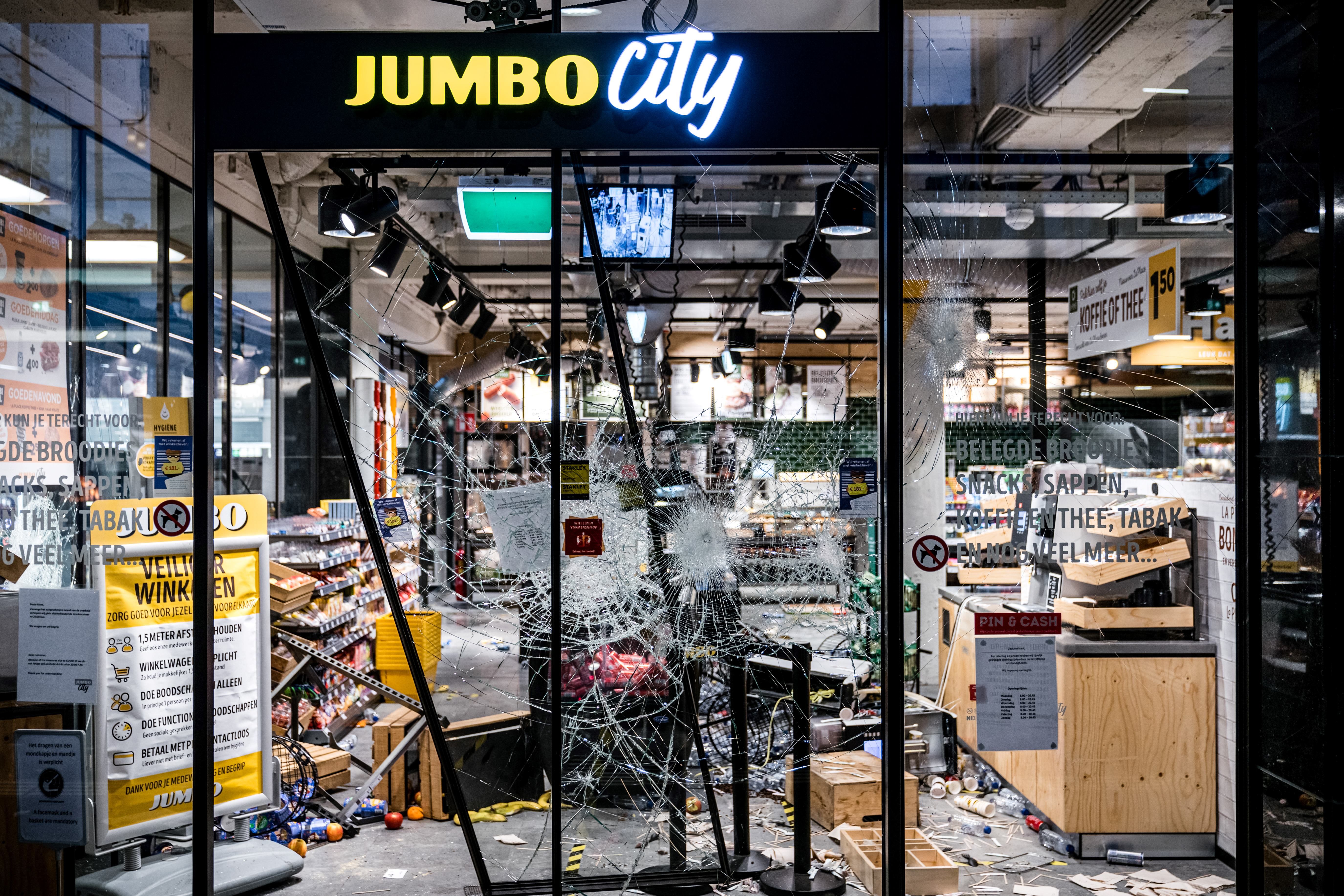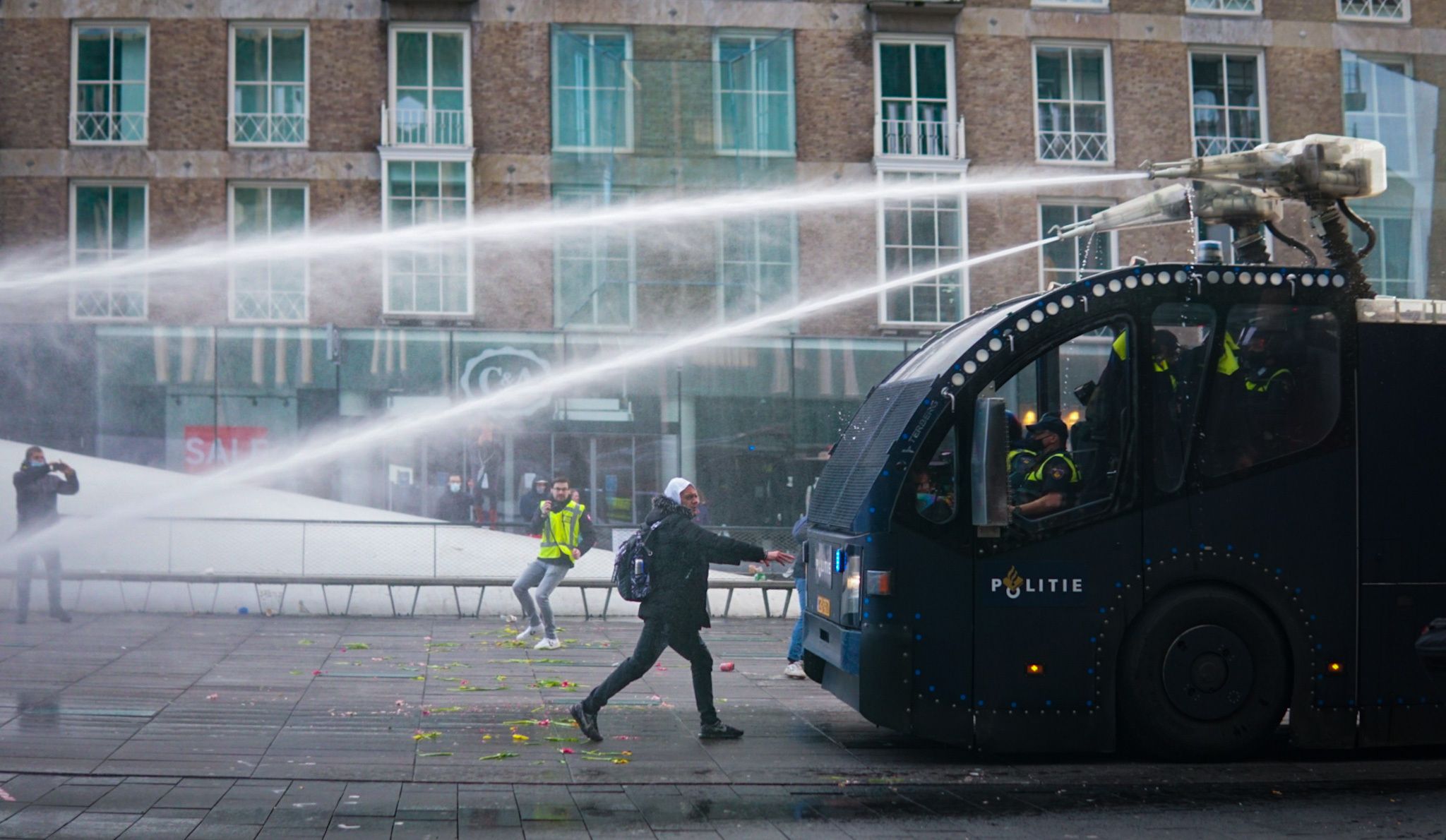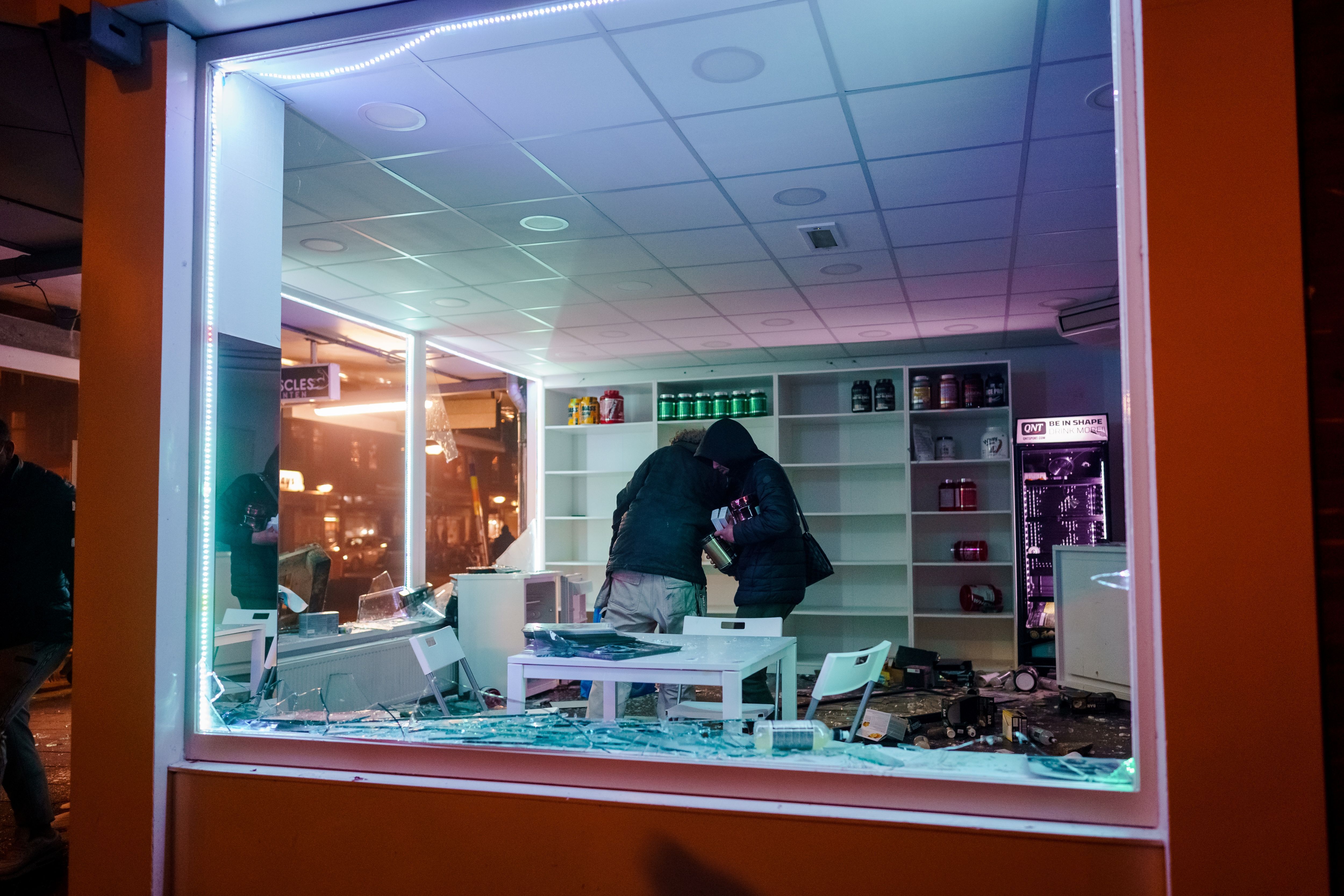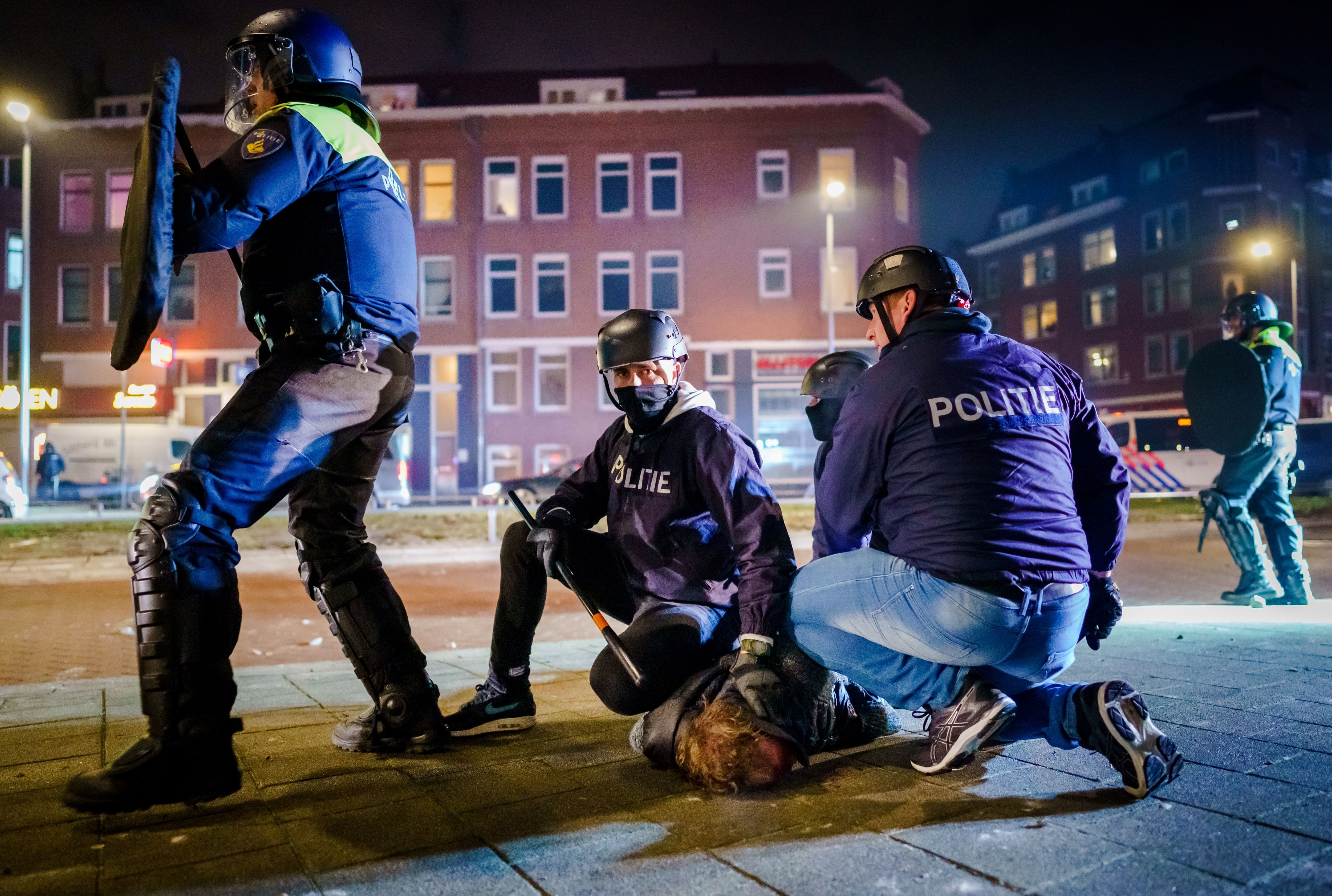A weekend of anti-curfew protests carried into Monday as crowds of residents rallied against new coronavirus restrictions and clashed with police in several Netherlands cities.
Why it matters: Dutch police have described the protests, many of which quickly turned into riots, as the worst unrest in four decades, the BBC notes. The country has confirmed nearly a million cases and over 13,500 deaths from COVID-19, per Johns Hopkins.
Catch up quick: In the past three days, riot police and protesters have clashed in Amsterdam, Rotterdam, Amersfoort and Geleen as demonstrations turned violent.
- Images and videos on social media show looting in Den Bosch and a mob attack on a press photographer in Haarlem.
- A coronavirus testing center in Urk was set on fire Saturday, the BBC reports.
- Police used water cannon and tear gas against demonstrators in Rotterdam.
- Unknown perpetrators lit fires on the streets of The Hague, while some men threw rocks and fireworks.
- Police have arrested more than 200 people, the BBC reports.
What they're saying: "It's unacceptable. All normal people will regard this with horror," Prime Minister Mark Rutte said on Twitter. "What motivated these people has nothing to do with protesting, it's criminal violence and we will treat it as such."
The big picture: The Dutch government introduced a curfew, a first in the country since World War II, after the National Institute for Health warned of new outbreaks due to the new variant from the U.K.
- Violators of the curfew, which stretches from 9 p.m. to 4:30 a.m. and went into effect Saturday, would face fines.
- The Netherlands was already under strict lockdown after coronavirus cases surged across Europe in December. Bars, restaurants, schools and non-essential shops remain closed.
- The government has also banned flights from the U.K., South Africa and South America in an attempt to prevent variants from reaching the country.
In photos: Curfew protest unrest across the Netherlands











